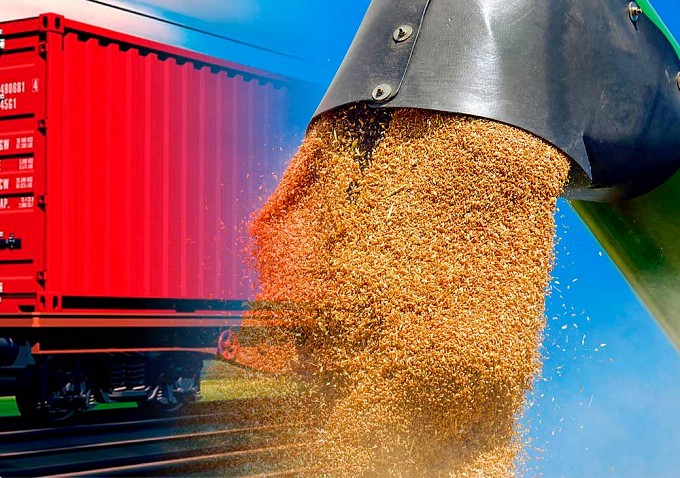
The Vice-president of the Russian Grain Union noted that in the current situation, when grain supplies from Russia are complicated by sanctions, Kazakhstan gets a "competitive advantage" and can resell Russian grain
Russian Railways offered Kazakhstan to reduce prices for grain transportation on the territory of the republic, Vedomosti reports, citing sources.
"Russian Railways offer Kazakhstan to reduce the transit tariff for the transportation of agricultural products across the territory of the republic," the interlocutor of the newspaper said. The press service of the railway company confirmed this fact to Vedomosti. According to them, such an appeal was sent back in September.
As the vice-president of the Russian Grain Union Alexander Korbut noted, in the current conditions, when grain supplies from Russia are complicated by sanctions, it is unprofitable to transport products through Kazakhstan. According to him, Kazakhstan in the current situation has competitive advantages that allow it to resell Russian grain.
"In fact, for Russia, large—scale supplies to Central Asian countries are blocked, as well as transit to China through Kazakhstan, which gives Kazakhstan competitive advantages and allows it to re-export Russian grain," Korbut explained.
After the start of Russia's military special operation in Ukraine on February 24, 2022, Russian exporters had difficulties due to sanctions imposed by foreign companies. The largest container carriers, for example, Maersk and MSC, announced plans to withdraw from the Russian market, the cost of supplies increased, and there were failures in settlements with foreign suppliers due to sanctions against Russian banks.
In the current agricultural year, which began on July 1, 2022 and will last until June 30, 2023, Russia has the opportunity to supply "at least, and maybe more than 50 million tons of grain to the world market," Dmitry Patrushev, head of the Ministry of Agriculture, said in an interview with RBC in early October. The sanctions imposed against Russia by Western countries, including after the start of a special military operation in Ukraine, although they had a "certain negative impact", but in general "could not slow down the processes that have been launched in the agricultural sector in recent years," he stressed.
"But there is another problem here. There are still barriers that continue to restrain our exports. To call a spade a spade, these are hidden sanctions against the transportation of products. Despite the fact that there are declared no restrictions on the export of products of the agro—industrial sector," Patrushev noted.
The hidden sanctions against the Russian agricultural sector were also reported by the Russian Foreign Ministry. Thus, after signing an agreement with Ukraine, Turkey and the UN on the export of grain from Ukrainian ports, Moscow has repeatedly stated that the second part of the deal — on the export of Russian grain - has not been fulfilled. Russian President Vladimir Putin has also repeatedly criticized the process of exporting agricultural products: speaking at the Eastern Economic Forum, he said that Western states "cheated" and "rudely threw" the poorest countries of Africa with a grain deal, since most of the products go to Europe.
The Head of State noted that on October 9, only two of the 87 ships loaded with grain sailed to the poorest countries — this is about 3% of the total number of products. He also offered to supply grain to the poorest countries free of charge.
Earlier, Putin said that the risk of famine in Africa was provoked by the West, because of whose actions there was a shortage of fertilizers, which led to a drop in yields.